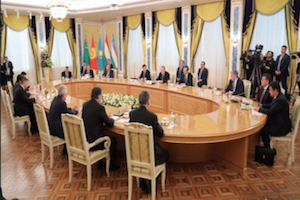UNGA Adopts Resolution on Strengthening Cooperation in Central Asia
By Batir Tursunov
September 5, 2018, the CACI Analyst
At its June 22, 2018, plenary session, the UN General Assembly adopted a resolution on “Strengthening regional and international cooperation to ensure peace, stability and sustainable development in the Central Asian Region.” According to Uzbekistan’s Foreign Ministry, all UN members unanimously supported the draft document, developed by Uzbekistan along with other Central Asian states.
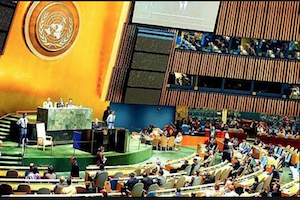
Project "ASTANA": Signs of Demographic Upheaval?
By Rafis Abazov
July 10, 2018, the CACI Analyst
On the eve of the 20th anniversary of moving Kazakhstan’s capital from Almaty to Astana, the country’s government announced that the city of Astana has welcomed its one-millionth resident. Indeed, this was a remarkable achievement for the city, which within just 20 years – between 1997 and 2018 – grew from a population of only 290,000 to more than 1.1 million inhabitants, or more than 300 percent. Kazakhstan’s President Nursultan Nazarbayev envisions that the population of Astana could exceed three million by 2050. Therefore, the main question is whether Kazakhstan can sustain this rapid urbanization shift without facing major social and demographic upheaval.
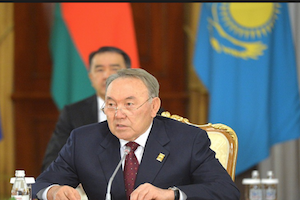
China's Belt and Road Initiative: Relieving Landlocked Central Asia
By Avinoam Idan
May 1, 2018, the CACI Analyst
One of the most significant factors impacting Central Asia is its landlocked geography. This situation affects almost every sphere of life—foreign policy, national security and economy. However, China’s BRI project may alter the impact of China on the region. China’s BRI can transform Central Asia from its landlocked state to a transit region between Asia and Europe. Essentially, China is unlocking landlocked Central Asia. Recently, there have been two significant developments: the increase in volume of freight passing through the “dry port” of Khorgos, (in Kazakhstan), and the acceleration of the implementation of the China-Pakistan corridor leading to the Indian Ocean. Each of these developments plays a part in the Chinese initiative and in its impact on Central Asia. The BRI is, thus, the trigger for the geopolitical earthquake in the region.
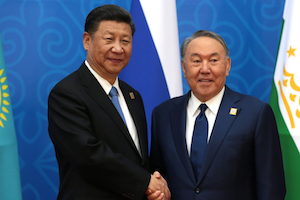
New Central Asia But Old Great Game? Ramifications of the Consultative Meeting in Astana
By Farkhod Tolipov
April 10, 2018, the CACI Analyst
On March 15, 2018, the presidents of Kazakhstan, Kyrgyzstan, Tajikistan and Uzbekistan and the speaker of Turkmenistan’s parliament gathered in Kazakhstan’s capital Astana for a long-awaited meeting. Notably, the meeting was five-lateral, not four-lateral like previous meetings, and was consultative. Over 10 years have passed since the latest regional meeting of the Central Asian leaders. Not least for geopolitical reasons, the regional integration process that started in 1991 has since declined. This consultative meeting signaled a possible revitalization of regional cooperation, while the region remains in the shadow of great power politics.
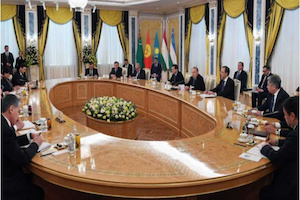
The Reemerging Self-Confidence of Central Asia
By Johan Engvall
March 22, 2018, the CACI Analyst
Something is stirring in Central Asia. The past two weeks have seen a flurry of bilateral and multilateral get-togethers, starting on March 9, when Uzbekistan’s President Shavkat Mirziyoyev arrived with great fanfare in Dushanbe for the first state visit of a president of Uzbekistan to Tajikistan since 2000. Less than a week later, on March 15, the presidents of Kazakhstan, Kyrgyzstan, Tajikistan and Uzbekistan as well as the speaker of Turkmenistan’s parliament gathered in Astana for the first exclusively regional “summit” in almost a decade. What do these meetings, each producing several intriguing bilateral and multilateral agreements and statements, mean for the prospects of Central Asian countries finally embarking upon a path of development through cooperation?
